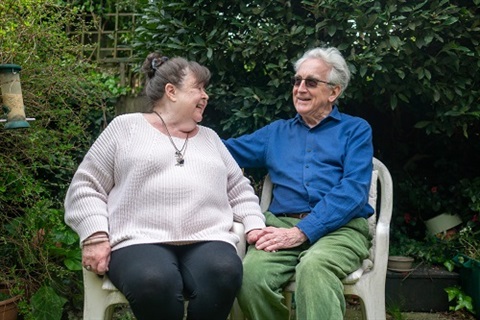Getting started with advance care planning
Published on 12 October 2023

While many of us prefer to avoid worrying about life’s worst-case scenarios, when it comes to our health, it’s important we all take some time to think about the unthinkable.
Advance care planning is one way you can help prepare yourself for whatever the future might bring. It requires you to think about your values, beliefs and preferences in terms of the healthcare you would like to receive should a time come where you cannot communicate your preferences with your doctors and loved ones.
“We recommend to a lot of our clients that they consider advance care planning, and consider it while they are relatively well,” says Kate Sammartino, team leader of community nursing at AccessCare.
“It can provide valuable guidance to your family and medical team regarding your wishes and values in relation in your life and your healthcare. Additionally, it can reduce stress and anxiety for family members if they ever need to make decisions for you.”
The first step in advance care planning is understanding what exactly it is and how it can support you in your future. This handy guide is designed to help you get started today.
What is advance care planning?
Advance care planning involves making decisions now about the healthcare you would like – or would not like – to receive in the future if you become so seriously ill or injured that you are unable to communicate your treatment preferences.
For example, it can include your preferences on palliative or end-of-life care, and what treatments you do and do not consent to receive.
Who can make an advance care plan?
Regardless of your age or health, it’s never too early to consider advance care planning. Much like making a Will, advance care planning is available to everyone, and can be updated over time if your choices change.
Advance care planning can be particularly important though if you:
- have a chronic illness or a life-limiting illness
- are at risk of dementia or have an early cognitive impairment
- have a condition that might impact your ability to make decisions in the future
- have very strong preferences regarding your future medical treatment
Why is advance care planning important?
Perhaps you’ve already thought about what decisions you would want made if you were suddenly hospitalised; maybe you have even told your loved ones what your healthcare preferences are. While it’s important that those people closest to you are aware of your wishes, these conversations alone may not be enough to ensure you receive the care you want.
Advance care planning can help ensure that your wishes are respected in the future. Nobody knows what lies ahead, and while we can’t always control what happens to us, advance care planning allows us to feel in control of our healthcare, regardless of what life throws at us.
Where do I start with advance care planning?
The good news is that advance care planning doesn’t need to be complicated. Getting started is easy; it requires you to first take some time to really think about what’s important to you.
The next step is to start talking with your family, friends, doctors and aged care workers about your values and preferences. These conversations should be ongoing; naturally, your preferences may change over time, so it’s important that you keep your loved ones and healthcare team up to date on what you want and don’t want in terms of your future health.
To make sure your wishes are respected, it’s important to formalise these discussions. Ideally, this will include recording your preferences in an advance care directive, which is legally binding. You can also consider choosing a substitute decision maker as part of your advance care directive, with this person able to help ensure your preferences are understood and followed. You can also upload this directive to your My Health Record, which will help local hospitals to have access to your wishes should they ever need them.
If you would like to find out more about advance care planning, please reach out to your AccessCare Aged Care Advisor. Alternatively, we encourage you to contact Monash Health's Advance Care Planning Program on 9594 3475, as they offer a free service that can assist you with advice and document preparation.